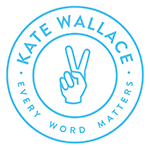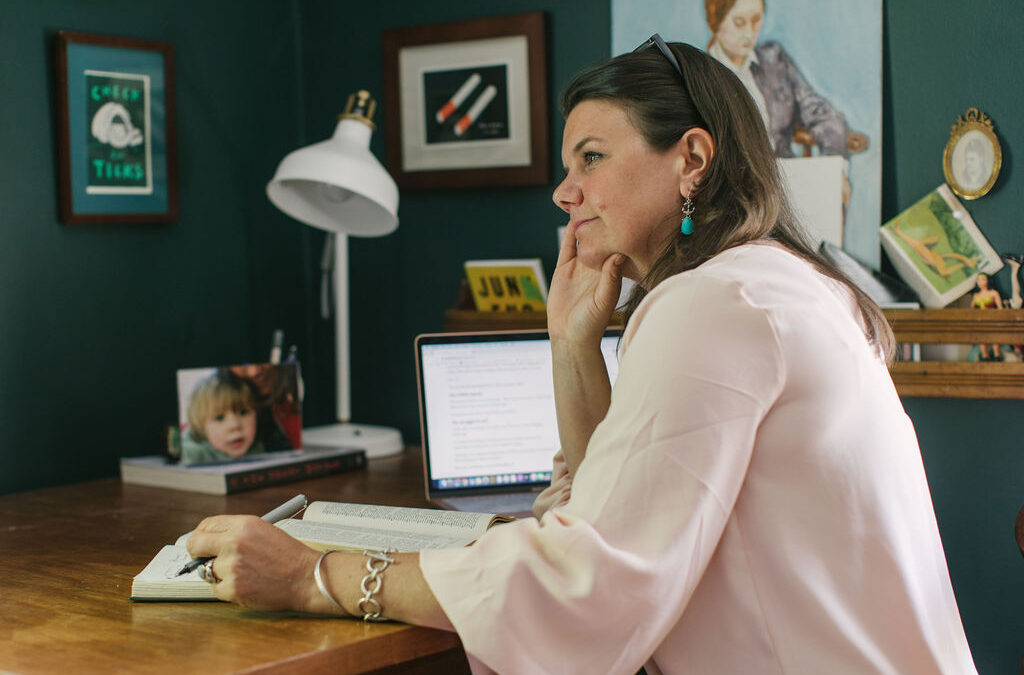“I’m not that interesting,” she says, with a little shrug, a downcast glance. “It’s nothing special.”
I want to take this woman by the shoulders and shake her (gently, of course).
“You are interesting!” I want to scream. “It is special.”
Some version of this scenario plays out too often when I talk to people (usually women) about writing and brand storytelling. I used to think that time was the main limiting factor to writing. Turns out, the biggest barrier is actually believing that you have a story—make the many stories—worth sharing.
Last year, I commissioned a market researcher in the U.S. to conduct deep-dive interviews and extensive surveys on people’s relationship to writing in their lives and businesses. I wanted to understand what was getting in the way and how they felt about sharing their stories.

The results were a minefield of self-diminishment. Respondents repeatedly dismissed the value of their lived experience and ability to share it in writing.
I’m not alone in this observation. My publicist friend Crystal Richard sees it, too. A big part of her job is pitching story ideas about her clients to media outlines. And that’s where the challenge begins.
“Well, I don’t have a story,” they tell her.
Then they point to someone with a ridiculously epic tale as the bar they need to reach. Often, they conflate struggle and tragedy, doom and gloom, with worth.
Nope. You don’t need to have survived a life-threatening illness, lost someone close to you or slain the proverbial dragon for your experiences and ideas to be of value.
Stories are simply about change. That change can be internal or external. And it can be everyday: an enlightening conversation at the coffee shop, how COVID changed your attitude to screen time, an unusual client meeting.
“Small” stories matter. They’re the stuff that is most of life, after all. The most common, universal things are often the most powerful.
Look at love songs. I mean, love might be the most banal emotion in the world. But you don’t see Taylor Swift or Paul McCartney going, “well, there are so many love songs already, what more could I possibly say about it?”
Or, more relatable, perhaps, are Instagram stories. These are almost always little snippets of everyday life. And people love them. So, yes, small is truly beautiful when it comes to stories. Every life is uniquely fascinating, even quiet and mostly happy ones.
It gets more complicated.
On the one hand, we think our stories are too small to matter. But then, when something big or wonderful happens, we think we’ll be egotistical if we share it. So now we’ve got ourselves all wrapped up in a double bind where we are self-editing our thoughts and stories because none of them are a perfect fit.
It’s like Goldilocks: too hot, too cold, too big, too small. But never just right. Never, well, enough.
That’s no surprise, especially for women. We’ve had overt and subtle signals our entire lives to keep ourselves small, to play down our personalities. to play down our successes and deflect compliments. And here in the Maritimes, our culture of modesty exerts even more pressure to demur.

So how do we resist these limiting beliefs? By actively advancing our thoughts and experiences, giving them the space they deserve in the full expression of our words and voices.
Because when we go silent or small we are doing the work of the patriarchy.
I know this sounds grandiose, but sharing your ideas and stories in writing is actually revolutionary. It’s a non-violent act of resistance to the forces that have tried to keep us small and quiet. That has made us such expert critics of our thoughts and words.
This isn’t just a social issue, of course. Stories are strategic. They are good for business. That’s because many of us run service-based and or/purpose-driven businesses. We are not cold corporations cranking out widgets. We are small, founder-led companies. When people work with or buy from us, it’s personal.
They aren’t just getting your product or service: they are getting a piece of you. So it follows that you need to let them know who you are and what you stand for and care about.
People buy from people they know, like and trust.
We’ve all heard this a million times. But here’s where it connects to the story: Stories are the opportunity to get to know you. To like you. To build trust.
Stories are the bridge that connects you to other people. So don’t dismiss yours. Share it. Every lovely, weird, little, happy, sad bit of it.
Next up on the Fieldnotes blog: I’m going to dig into why stories matter. We’ll look at how stories work (the brain science behind it will blow your mind, pun intended) and what makes them so darn powerful and worthwhile.


